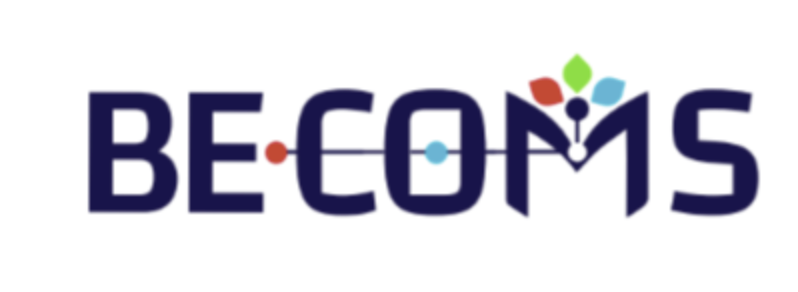The project carries out 4 main actions closely linked to each other.
- Good practice workshops for teachers, educators and trainers (A1).
Workshop 1: Innovative teaching-learning methodologies
13-14 OCTOBER 2022 Donoso Cortés, 9, 11 – Malaga Hybrid sessions
- I Session The DIG4LIFE project experience (9.00 – 14.00)
- II Session Pedagogical Methodologies for 21st Century Learners (5.00-20:00)
- III Session Design and development of multimedia resources for learning (9:00-14:00)
Workshop 2: Teaching/Learning methodologies for engaging & inclusion participation and compensation
02-02 MARCH 2023 Donoso Cortés, 9, 11 – Malaga Hybrid sessions
- I Session Methodologies in equity and compensation (11:30-13:30)
- II Session Discussion in subgroups (14:30-17:30)
- III Session Digital tools for accessibility and inclusion (11:30-13:30)
- IV Session Digital methodologies for inclusion in education (14:30-17:30)
- V Session Useful scenarios to include and compensate the inclusive students through interactive boards (14:30-17:30)
- EDU HUB for the promotion of Peer Labs for School Principals, teachers, educators and trainers (A2).
EDU Hub is an open community of practices that, by enhancing the networking opportunities, wants to allow all those who work in the world of education, training, guidance and social innovation to:
- build alliances and new synergies to generate value;
- share good practices, experiments and experiences made for sharing the and promoting dissemination, sharing and social innovation;
- partecipate in training activities and/or experiments carried out through projects promoted by the DITES centre,
- become active agents of social innovation;
- partecipate free of charge and actively in the peer lab and contamination lab courses designed by the DITES research centre, which promotes the initiative.
Joining the EDU HUB community is free, and it allows you to:
- receive the free quarterly newsletter of the Research Center with the extract from the journal Quaderni di Comunità. People, Education and Welfare in the 5.0 society;
- be informed about training initiatives and conferences in which to participate for free;
- be informed about the calls and contests promoted by the DITES research centre and the journal Quaderni di Comunità. People, Education and Welfare in the 5.0 society.
The EDU HUB community was born under the impetus of the RE-EDUCO and DIG4LIFE projects. It will continue its activities within the BE-COMS project to establish itself as an autonomous collaboration space to generate value and enhance talent.
To join the EDU HUB Community, register by filling out the form at this link
3. PEER LABS for teachers and students for sharing innovative ideas, methodologies and tools (A3)
- Peer Lab for teachers: Good practices and innovative ideas on Technology Enhanced Learning for engaging and inclusive learning, Darica MEM and ENTROPY, 26-28 April
Download the flyer - Peer Lab for students: Empowering students for digital learning and society, 27-28 September 2023
- Italy: download the flyer
- Turkey: download the flyer
- Spain: download the flyer
- Contamination Labs aimed at enhancing participants’ creativity and supporting creative and sustainable ideas (A4)
- Italy; 12 July and 18-19 July: download the programme
- Turkey, 29 September 2023: download the programme
- Spain, 4 October 2023: download the programme
Final Conference
- Darica National Education Directorate, 13-14 October 2023: download the programme
Call for Call for ideas “Teaching enhanced learning for engaging and inclusive learning” for the Special issue for dissemination: Journal Quaderni di Comunità. People, Education and Welfare in Society 5.0 n. 2/2023
Final Publication: Special issue for dissemination: n. 2/2023 Journal Quaderni di Comunità. People, Education and Welfare in Society 5.0
This issue of the journal addresses the topic of “Teaching Enhanced Learning for Engaging and Inclusive Learning” in the digital age. The topic is certainly not new in the international scientific debate, which is interdisciplinary in nature; it is part of the themes underlying the studies of Digital Education and Digital Literacy, but it represents an issue that is always at the forefront insofar as it is affected by technological innovations and sociocultural changes that digital culture progressively stimulates and promotes in different educational environments. In this sense, digital education in teaching and learning processes needs to be scientifically recognized in academic circles, institutionalized by emphasizing the methodology and evaluation strategies that educational media practices have been experimenting with for several years, for the purpose of a systematization of interventions, scientific literature and critical reflections on the topic. Within this issue, the focus is exactly on the assessment methodologies and strategies activated and activated in the digital education perspective, with special attention to best practices in different educational contexts: from elementary school to university.
Published on September 2023
Link to the final publication
As a final result of the project, the final report can be downloaded at this link.
